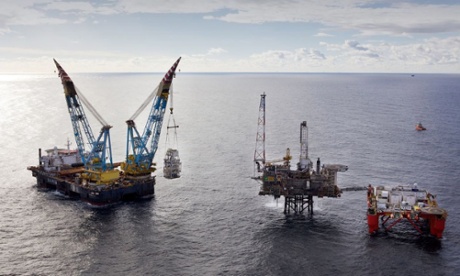
George Osborne’s North Sea tax changes are a gamble that forgoing £1.3bn worth of revenues over five years will trigger a £4bn investment spree that will yield more tax income in the future.
The chancellor has cut a range of taxes that have multiplied over the last couple of decades, in order to help an industry under pressure from a slumping oil price and rapidly depleting oil fields.
The reductions include the petroleum revenue tax, which is levied on profits from fields developed before March 1993 and has been cut in the budget from 50% to 35%. There has also been a reduction in the supplementary charge, backdated to January of this year, from 30% to 20% on newer fields – reversing an increase Osborne had implemented in 2011.
This means that the typical tax burden on these new fields has fallen from 60% of profits to 50%, once corporation tax is added to the supplementary charge.
But the eventual tax bill could fall to 40% for some oil and gas companies because Osborne has also introduced a further tax break for investment in oil fields.
In addition to this, the government has committed to spend around £20m of public money undertaking seismic survey work, which should give indications of new oil reserves below the sea bed. That in turn would make it easier to attract operators to take out licences and undertake new exploratory drilling.
Not everyone will benefit from the changes. Some North Sea companies are loss-making and are not paying taxes at all currently. And while the tax changes were welcomed by the UK oil industry, other concerns include a skills shortage and high costs. Operating in the North Sea has been made even more costly by a collapse in the global oil price to around $50 a barrel, compared with $116 last year, which has hit profits across the industry.

